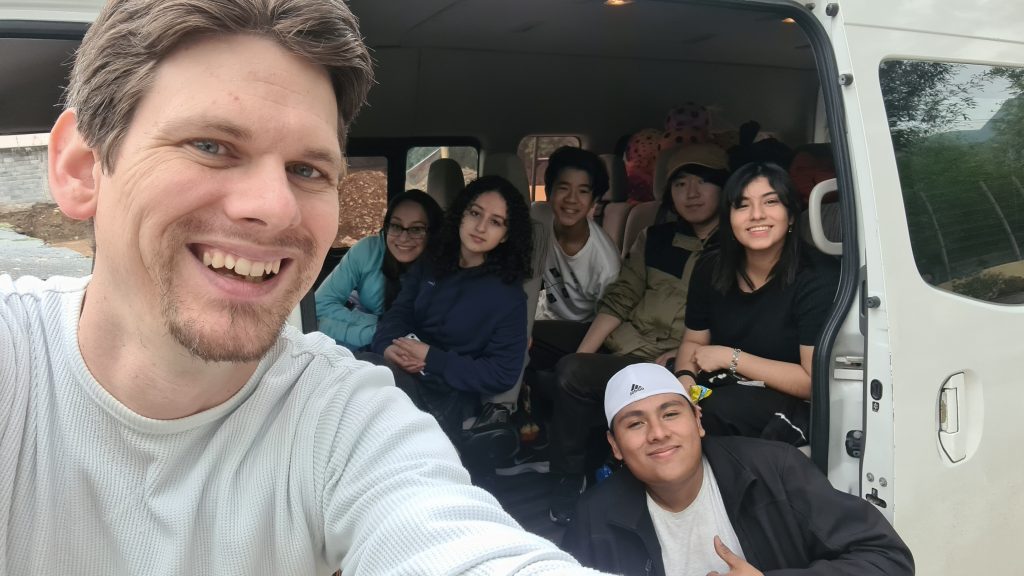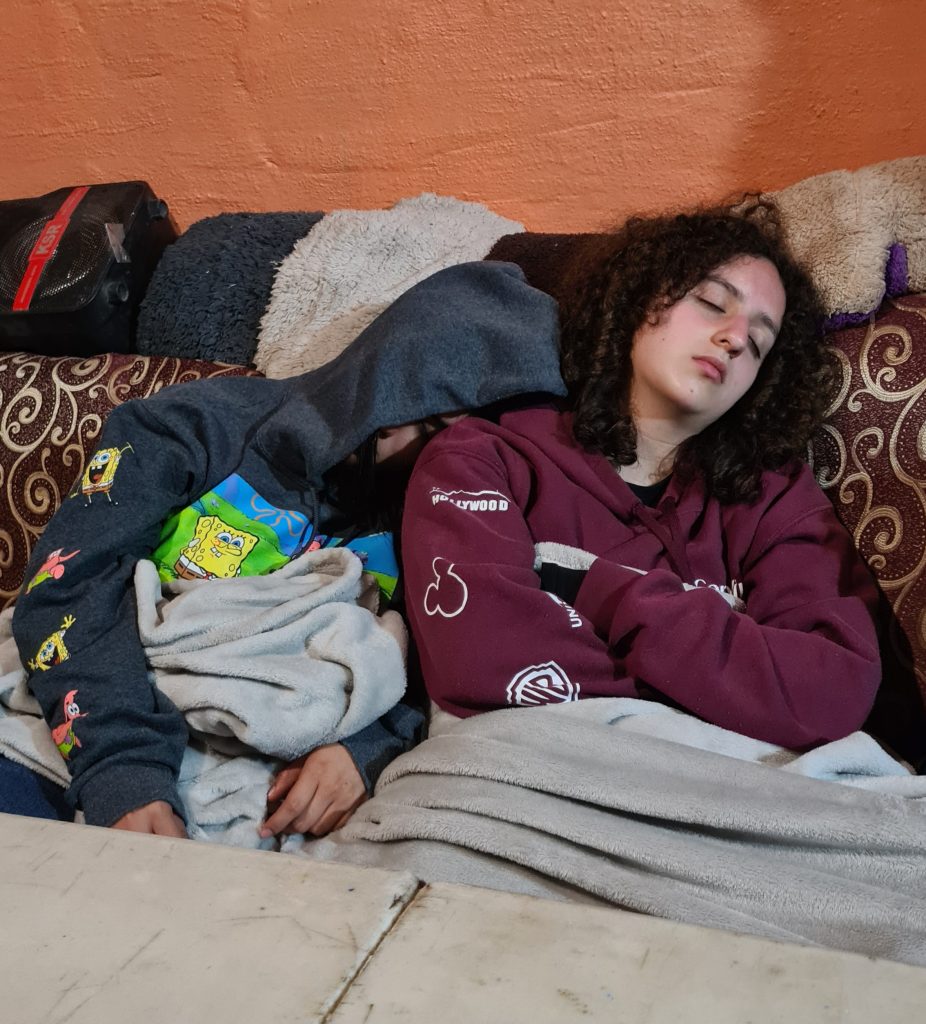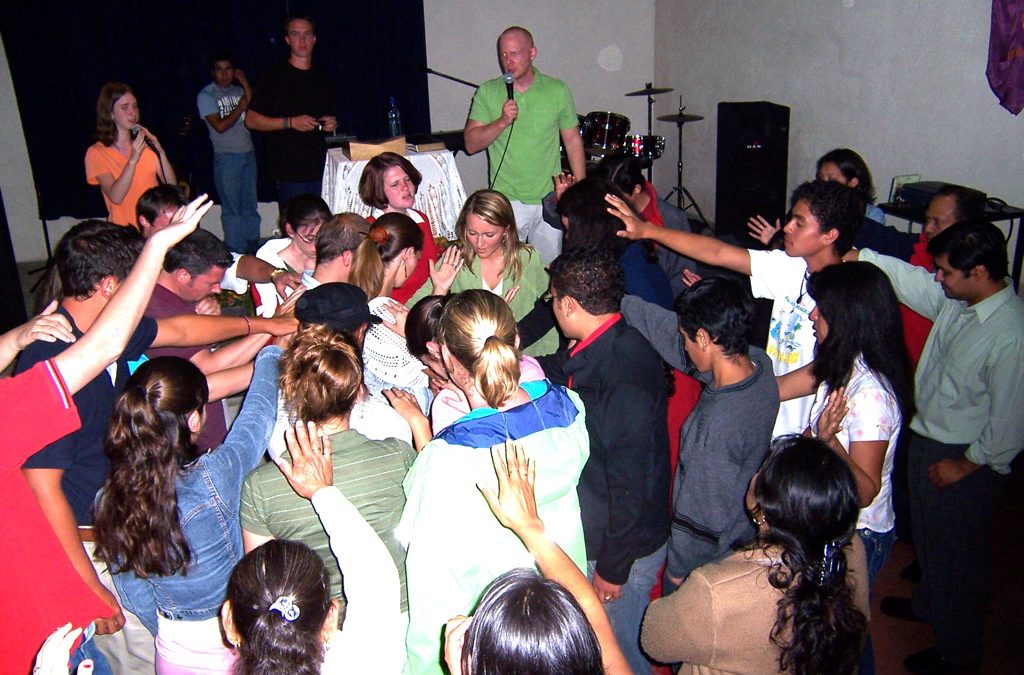On the surface, short-term mission trips to sometimes exotic locations seem to be all about satisfying our wanderlust. But in truth, they are one of the most effective tools we have for training next generation disciple makers.
In Matthew 28:19, Jesus gives us the very clear command to “Go therefore and make disciples of all nations…”
This command, the Great Commission, is the marching orders for all Christians everywhere. All of us are to be about the business of leading people to faith in Christ, and then leading them on to maturity in their faith in Christ.
However, we all also have a unique call on our lives which informs how we live out Jesus’ command.
For us at Genesis Commission, our unique way of living out this command is to disciple those who will make disciples.
That is, we train disciple makers to live out the Great Commission.
We do that in a variety of ways.
Leading and teaching in Bible schools around the world, organizing youth conferences, and conducting ministry seminars—all of these are means to the great end of training next-generation disciple makers.
In today’s post, I want to highlight one of the most powerful tools we use to train these up-and-coming disciple makers…
Short-Term Mission Trips
If you’ve been a Christian for any good amount of time, for sure you’ve heard of mission trips.
I can still remember my very first mission trip. At the tender age of 15-years of age, I took my very first plane ride to the Dominican Republic.
This was such a long time ago, that I have no digital photos of the trip to show you!
Sadly, I have no idea where the photos I printed out at my local Wal-Mart are located. 😢
In fact, I had to take a photo I took from a much more recent mission trip (like recent as in 2006 😂) just to have a feature image from this blog post.
Even so, here’s a picture from Wikimedia Commons that really shows exactly what the Dominican countryside looks like.
For two weeks, we raced across the Dominican island going to sometimes five different villages per day to perform our salvation-oriented drama, share a testimony from someone on the team, and give an evangelistic altar call.
It was intense. In the end, I was exhausted, but I knew that something in me had fundamentally changed.
My world had expanded. The Church to me was now a global body, not just a provincial reality.
For the first time in my young life, I felt as though I was living out Jesus’ words exactly as He meant for me to do.
Sure, I had ministered in many other ways beforehand, but this was different.
Going on a short-term mission trip had taught me several things I couldn’t have learned in a classroom setting.
Of course, my personal experience isn’t the only reason we use short-term mission trips to train next-gen disciple makers.
Yet I want to list out for you some of the incredible lessons I learned from short-term missions so that you can see exactly why we continue to leverage these powerful experiences in our work at Genesis Commission.
1. Dependence on the Holy Spirit
Being in a different culture stripped me of the ability to rely on my natural talents and skill-sets.
Shoot! I couldn’t even talk right. What little Spanish I knew sounded to the locals like baby gibberish.
When you’re this useless, you learn quickly to rely on the real power that you have—the Holy Spirit living inside you.
But we have this treasure in jars of clay, to show that the surpassing power belongs to God and not to us.
2 Corinthians 4:7 (ESV)
I knew nothing of the culture, the geography, the customs, even the day-to-day workings of the people’s lives.
What could I possibly have to give to the people of the Dominican Republic as an inexperienced kid from Smallville, USA?
The Word of God. Prayer. My Testimony.
Everything I had to give was from God and not from myself. It was a truly self-emptying experience.
This is what we want all of our young trainees to understand deep down to the core of their being.
What they have to offer the world doesn’t come from their sense of self or from their talents and abilities.
While all of that can be good, our value and what we have to offer the world comes from the timeless, objective truth of God’s Word!
2. Cultural and Spiritual Humility
I’m proud of my national heritage, but I understand that the United States isn’t heaven on earth.
Before being an American, I am a follower of Christ and a subject of the Great King, God Himself.
The Kingdom of God cannot be relegated to a nationality or sense of patriotism.
God’s Kingdom is simply wherever God rules—and that could be in Crawford County, Ohio or it could be in Cotuí, Dominican Republic!
To be an effective disciple maker, you’ve got to have a cultural and spiritual humility which comes from having a Kingdom worldview.
I learned this first-hand in the Dominican Republic.
They don’t do church the way my folks back at home do. Christians in the Dominican Republic don’t dress like we do.
But that doesn’t make them any less Christian than we are back at home.
I’ll never forget the time I had to use a bathroom without running water while on my trip. Never in my life had I ever had to eliminate my waste without indoor plumbing.
I left the “bathroom” debating whether to tell someone about my predicament. Should I ask for help or act as if someone else had left that disaster behind?
The only native person who spoke even a little bit of English there was a young girl my age. So, my 15-year-old self had to tell this girl that I didn’t know what to do with my 💩.
She laughed. My face turned a hundred shades of red.
Then she grabbed a bucket of water and disposed of my problem with a well-practiced throw.
I cannot tell you how humbling that moment was for me as a young disciple maker.
This is just an example of the kind of humility we are instilling in our young students by taking them on short-term mission trips around the world.
When you see our selfies and posts on social media, you might think we’re out there livin’ it up.

But the truth is that our young disciple makers are learning the timeless lessons of humility as they are having to be cared for, rescued, and led by others who might be from lower social-economic classes, the opposite gender, or other ethnic groups that they might have once despised.
When you support Genesis Commission, you’re helping us to get these next generation disciple makers onto the mission field where they can be humbled and shaped for God’s service.
3. Diligence and Perseverance in Ministry
Hard work. It’s something that a lot of young people are quite allergic to.
It’s not a Gen Z thing either. This is a perennial issue afflicting every generation of humans since the fall of man!
Laziness was such a problem that King Solomon had a lot to say about it in his Proverbs. Here’s one of my favorites:
Go to the ant, O sluggard;
Proverbs 6:6–11 (ESV)
consider her ways, and be wise.
7 Without having any chief,
officer, or ruler,
8 she prepares her bread in summer
and gathers her food in harvest.
9 How long will you lie there, O sluggard?
When will you arise from your sleep?
10 A little sleep, a little slumber,
a little folding of the hands to rest,
11 and poverty will come upon you like a robber,
and want like an armed man.
You might not put laziness as the top concern when it comes to training disciple makers, but it is one of the top reasons for why churches aren’t growing.
Truth is, it takes a lot of hard work to make disciples and grow churches.
Whatever we do to train our next generation of church leaders, whatever skills or knowledge we choose to impart to them, if we do not teach them how to work hard, the Church will not last.
How do you get laziness out of a young person?
One of the quickest methods is short-term mission trips.
Even if a young disciple maker comes from a privileged background where little was asked of them, when they go on the field, they will be required to work like they’ve never worked before.
The short burst of intensity in the project drives out the lazy spirit and forces them to adopt a work ethic to which they’ve not been accustomed.
Take them on enough short-term mission trips, and you’ll see a helpful, hard-working individual begin to emerge.
4. Personal Responsibility
One of the first memories I have of short-term mission trips is a rather negative one.
It happened after a night-long bus ride to the airport in Dallas. We were staying on a missions base camp about three hours from the airport, and to get to the airport in time for our break-of-dawn flight, we had to leave around midnight from the camp.
In my teenaged, late-night stupor, I had fallen fast asleep on the floor of the bus. I awoke to the shouts of my team leaders that we had arrived and that we needed to get off the bus.
I stumbled down from the bus to get my luggage, only barely half-awake.
Getting into the airport, I realized I was missing something very important. My wallet was gone!
Fully awake now, I ran back to the bus. Nothing. Everything was empty.
I asked around, frantic to get my wallet back.
I had stuffed away all the money that I needed for the trip in that wallet. In the end, none of it worked. I was wallet-less and therefore, penniless.
But I had no money for food along the way. I lived for two weeks off the charity of my companions who would give me a sandwich here and there when we weren’t on the base where I was provided all of the main meals.
Sure, I wasn’t going to starve, but man, was that a HARD LESSON to learn at 15-years of age.
Fortunately, our leaders had the foresight to gather all of our travel identification documentation beforehand, so I still went on the trip.
Yet at the end of it all, I had learned a valuable lesson on personal responsibility.
Although I was surrounded by good, seasoned leaders, I was responsible for my things, for my sphere of influence.

Personal responsibility is a crucial value for any disciple maker to have.
Disciple makers take responsibility for the spiritual well-being of those around them.
The well-being of others is their primary concern. They are their brother’s keeper.
Short-term mission trips is one of the most effective methods to teaching personal responsibility.
Each young person is responsible to raise their own funding, plan their own budget, contact the leaders in the country to which they are traveling, put together the ministry itinerary, organize their personal belongings, stay focused during the grueling hours of travel and ministry, as well as a host of other responsibilities.
Simply put, the mission trip makes personal responsibility a really big deal, which is why we use short-term mission trips to train disciple makers.
5. Leadership and Organizational Skills
I mentioned earlier that the students are required to make a trip budget, raise their own funding, create a ministry itinerary, communicate with their in-country contacts, and a host of other tasks.
Each one of these steps requires leadership and organization on the part of the students.
Of course, there is the student leader that we assign to each and every mission trip.
This is the young man or woman responsible to put the entire trip together and lead their peers to victory.
By taking our students on mission trips, they have the opportunities to succeed or fail at leadership positions.
This real-world experience is hard to create in the classroom, which makes short-term mission trips so valuable to us as we raise up these young leaders for the Church.
6. Practical Ministry Skills
One of the reasons people want us to come with our young disciple makers to their countries is because our students are trained to do many kinds of ministry activities.
They can share their testimonies, minister to youth, lead worship, pray for people at the altar, lead Sunday School, put on a VBS children’s camp, and many other things.
Whatever the need is when we arrive, we want our students to be ready to be useful and ready to help.
Of course, we train them first in the classroom setting on our campuses, but it’s on the mission field where these skills are put to the test in real-world circumstances.
When a student has these very real experiences, when they leave our Bible schools, they will be ready to minister in their local churches.
For example, after graduating our year-long program at Instituto Epicentro, they return to their home cities with practical ministry skills to help grow their churches’ youth groups, small groups, Sunday Schools, and other ministries.
7. Communication Skills for Supporters Back Home
Another skill our students learn by going on short-term mission trips is how to communicate to potential supporters and actual supporters.
They are trained in how to share their mission with others and talk with others in faith about the mission God has put them on.
Sharing the vision ofa trip with others and then asking them for their support is a difficult thing to do.
But with short-term trips, they are being trained in how they can do that for their local churches in the futures.
Again, we could teach this by showing them a PowerPoint, but it is much more effective when the student has to do it in order to go on his or her mission trip.
Genesis Commission Mission Trips
There you have it. That’s seven powerful results that we see in every student class by taking our students on short-term mission trips.
Each one of these is also a reason why we’re so grateful for our supporters. Your prayerful giving is what fuels our missions endeavors so that we can continue to take more young people on these life-changing trips.
If you haven’t already, subscribe to our newsletter, The Mission Journal, so you can get our updates, encouragement, and testimonies right to your inbox!

